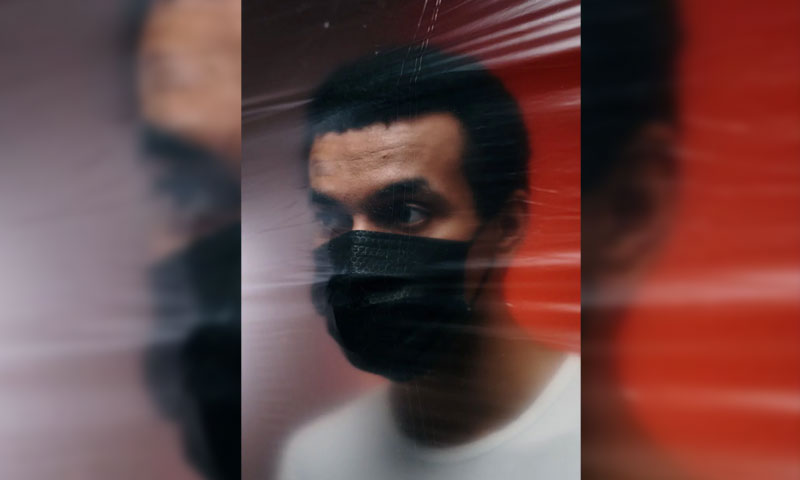We being stoical about our insecurities may appear strong to the world, but the truth is, we all fight inner battles every day that we don’t openly talk about. These battles need to be heard and addressed to help us not be consumed by them. Letting yourself and others understand that you’re suffering through anxiety is the first measure to cope with it.
If you think you’re alone, you’re mistaken. There are millions of people who fight the same battle as you every day. Knowing this, however, does not help provide anxiety relief, but understanding yourself better, will.
What does Anxiety Feel Like?
Anxiety can take many forms, coming out as phobias that interrupt our daily lives. Social Anxiety, OCD, Clinical anxiety, GAD(general anxiety disorder) are some of the most common types of anxieties. But they are all diagnosable, controllable and treatable. That said, knowing about your anxiety and its severity are crucial.
Let’s understand how some of these common anxieties feel like, and how to outweigh them with your inner strength and positivity.
1. OCD (Obsessive Compulsive Disorder)

OCD can make anything turn into an obsession, and you feel like you have a compulsion towards working for these obsessions. They can be anything, ranging from washing your hands every 5 minutes, body dysmorphia, hoarding, compulsive skin picking, etc.
Although it seems like you have no control over these activities, you do, and here’s how you can regain it.
- Accept that these are false feelings
- Stop running from the anxiety and start addressing it
- Try hard to agree with your compulsive thoughts and let your brain register the fact that there weren’t any ill-effects when you didn’t act on these thoughts. Use that thought as a future coping mechanism as well.
- Exercising will not only help provide mental peace, it will take your mind off compulsive thoughts too.
2. Panic Attacks
Psychologist Anne Marie Albano, director of Columbia University’s Clinic for Anxiety and Related Disorders, says “If you suddenly have to slam on your brakes and swerve to avoid a collision, that pounding heart and rapid breath you feel for a few minutes, is a form of a panic attack.”
It triggers deep fear and hyperventilation, but while you have a panic attack, allows yourself to go to a silent place and perform this:
- Deep breathing – Close your eyes, deep breathe, and shift your focus on your breathing (inhaling and exhaling).
- Find an object to focus on and shift your thinking on that object (can be anything, a pen, clock, sky). Visualize the patterns, colors, of the object you are viewing and try to only think about it.
- Chat a holy mantra – Any mantra that you live by, or don’t (still works even if you’re atheist) can help reduce the effect of a panic attack considerably (chant OM, or another powerful mantra that gives you a sense of peace).
3. Social Anxiety

The most common anxiety, which may range from mild to severe, is social anxiety, and it can restrict people from being their best selves. While nervousness is natural, but when it takes over your daily life activities and stops you from participating in an event, conversation, etc., it can be a sign of persistent social anxiety.
People having social anxiety have sworn by these measures to be helpful:
- Don’t pay attention to the negative thoughts in your mind that continuously bring you down. To do that, have motivational quotes or little positive notes for yourself on your phone.
- Do not let your emotions control you; you control your emotions.
- Do not push yourself to be in an event, but it’s essential to try at least being there. However, you can go home as soon as you feel uncomfortable. But take a small step towards addressing the anxiety and not running from it.
Acknowledge that everyone is just the same as you. Making mistakes is okay and a part of life. You cannot control everything, and which is why, let the control freak in you, who is ashamed and embarrassed, go!
4. General Anxiety Disorder (GAD)
Do you, too, worry excessively or feel tense all the time? So much so that it hinders your ability to relax? Maybe this is because of the stress built-up over time, or perhaps it’s something more.
Do These Thoughts Sound Familiar?
Why aren’t they picking up calls? Are they even alright? (The dread is uncontrollable)
Shit, I don’t feel well today, I think I might be critically ill. (The dread is uncontrollable)
My mind can’t stop worrying! I’m losing sleep, appetite, etc. (The dread is uncontrollable)
If you too, hook onto these thoughts in loops, get consulted for GAD.
For people who do have GAD, Some good practices to keep it in control are:
- Take it out, be it through writing, talking, therapy (Cognitive Behavioral Therapy is beneficial), and don’t keep the emotions gurgling inside.
- Work your 5 senses. Look, feel, listen, touch, or smell anything that you think is relaxing or therapeutic.
- Can’t stress enough about exercising? Daily exercise, even a 20 min walk, can help you with GAD.
Anxiety is real and hard to handle. But, instead of the disorder taking over your mind and body, its time you take over it. Anxiety is a battle within, and fighting it needs consistency, strength, love, and respect for yourself.
You’ve got this! All you need is start directing controlled thoughts towards. Just start with – Smile, Breathe and Go slowly (Simple but works).







